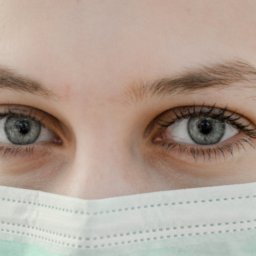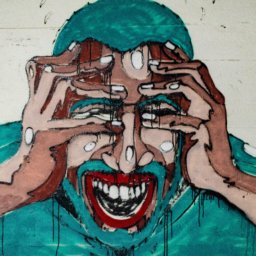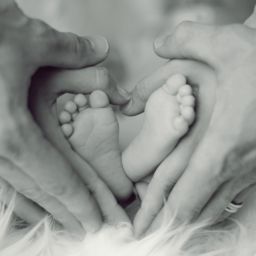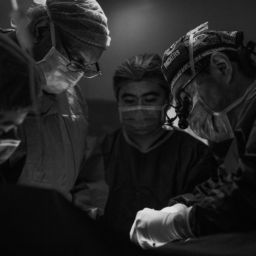The ward is silent as I make my way towards the nurses station. It is the only light that continues to shine in this corridor. Two nurses sit at the desk, both looking up with tired eyes as my shoes step into the night. One hands me the medical notes and I sit down, relishing the few minutes of rest. We are too tired to make any smalltalk and instead battle with our eyelids as our heads dip towards the table.
I always struggle during my first night shift. No matter how many hours sleep I steal in the day, the first night always beats my body down. I’ve done enough shifts now to know when coffee will be useful and when it’s just going to cause a headache. There are some advantages to night shifts though. For one, the hospital is generally more peaceful as the multiple medical wards are propped up with skeleton staff. The other great thing about working on a night shift is that you can avoid the admin that overwhelms your daytime work. Only things that need to be done overnight – emergencies – are focused on. It’s during these night shifts and on-calls that I feel like a doctor. Tonight, this is one of many patients I am asked to see and she is certainly unwell. As I read through the medical notes several words catch my eye: lives alone, independent, pneumonia, requiring oxygen, Day 4 of Antibiotics. Unwell but can be treated, I think to myself. Not something I can say about many of the patients in this ward. I steal a few more seconds resting on the chair before I remember the long list of jobs I still need to do on the other wards.
I make my way to the corner of one of the bays, past the silence as duvets rise and fall in time with dreams. It is enlightening to watch the gradual change on the ward once the sun rises and the doors open for the day staff. For now, these patients can forget about being in a strange place surrounded by strange people. For now, they can just be themselves.
Far in the corner is the lady I have come to see. The only one awake in this bay of sleeping ladies, the timid glow I can only see her face, but that is enough for me. I can see she is struggling. Her body is leant forward on the bed as if she is expelling the disease from within her. I can see each breath is a struggle as her muscles clench in time with her chest, each breath a gasp that cannot get enough air – like a swimmer who must time his breaths with precision. She looks like she is drowning.
“Hello,” I say in a half-whisper, conscious of the sleeping patients around me. I perch on the edge of her bed and simply watch as she nods at my presence and focuses her eyes on my pointy arms poking out of the scrubs. She’s really struggling. Now that I’m up close I can see the darkness under her eyes. Her fingers are gripped tight on the duvet as her body tries to keep itself alive. I reach over her shoulder to increase her oxygen levels; she is already wearing a mask and the nurses have been increasing it steadily throughout the night; it’s the reason I’ve been called. A slight wisp and I watch the increased pressure fill her mask as the oxygen drives its way inside her throat. Within a few minutes her muscles have started to slow as she acknowledges the gift. You don’t know what you need until it’s taken from you, I think to myself. I always get a bit philosophical on nights – it must be the sleep deprivation.
We continue to look at each other in silence for a few seconds, each weighing the others life in turn. I know where the scale balances. I wonder what kind of life this lady has lived so far? How many people must she have met, lived through seasons come and gone, travelling through wind and rain and summers galore to get to where she is now. Sitting on a hospital bed in the far corner of the country, struggling for life as a twenty-something observes from afar.
“I think we might need to try some different antibiotics.”
I break the silence but do not anticipate her reaction. She shakes her head frantically, her body jumping with more energy than when she was struggling for breath just a few minutes earlier.
“No, no, please, no,” she says, her voice dimmed through the plastic mask. But I can see the fear in the downward turn of her eyebrows, her pleading gaze into my own.
“I know you’ve been through a lot already, but this is an infection we may be able to treat. With some stronger antibiotics you might start to feel better,” I say.
Again the shaking of her head. This time she begins to rock her body back and forth, like a rag doll being shaken by an over-enthusiastic child.
“Enough. I’ve had enough,” she says, and this time the mask cannot screen out the moan.
“If we don’t give you any treatment you will die,” I say. I don’t beat around the bush with these types of conversations. Nor, do I find, do the patients.
The lady nods in approval and lifts her mask off her face for a second. During that brief moment I am able to take in the years of life etched upon her skin, her once glowing cheeks left sunken and hollow.
“I just want to be at peace,” she whispers.
The mask is back on before the air suffocates her.
“Would you like me to call your family?” I ask.
She nods in response and we come at an impasse. We have come to an understanding. She closes her eyes and allows her chest to flop forwards over her buckled knees, her arms stretched tight around her body as she continues to rock back and forth in time with her breathing. In silence, I write up some morphine on her drug chart to help with her breathing. I stop her antibiotics, the statins her GP must have started years ago, the blood pressure pills she will no longer need.
I say nothing as I leave the small bedside to wake up a family from their untroubled dreams. As I walk back through the bay, I notice that something has changed. Looking around, the duvets no longer rise and fall in rhythm. Through the dim light flowing from the windows I see eyes looking back at me. I sense the ears prickling beneath the covers as the plight of this elderly woman becomes acknowledged by the rest of the bay. This woman, who wished only for dignity and peace, will die with strangers around her who will know her every move.















Hello! Vodkafan here from BCF. That’s the first bit of your writing I have read. Although to be honest I forgot to think about how the writing was, I got caught up in the old lady. It is sad that people die alone in hospitals without their families around them.
What a beautifully written short piece, Angury!